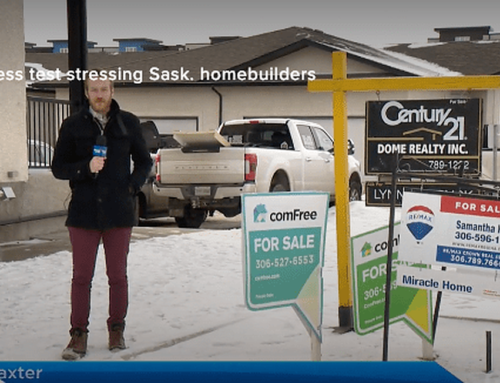In an article I recently published called “Is Now a Good Time to Buy?” we identified that interest rates are at all time Canadian lows and as it’s never been cheaper to borrow money, now is a good time to buy property. In no way was it being said that “because interest rates are low, you should rush out and buy property”. Obviously there is a balance and you should take the decision to buy a property seriously. The point of the article was that while the media would have us believe that the sky is falling and the housing market is crashing around us, it’s not all doom and gloom, there are some silver linings (like low interest rates).
But the problem with low interest rates is that they can actually perpetuate the housing crash conversation. These low interest rates won’t last forever, inevitably rates will go up. And when they do go up, the question is “are today’s low rates setting people up for failure down the road when rates increase”? Well, let’s have a look and discuss the 5 year fixed rate mortgage.
Firstly, when qualifying for a mortgage using the 5 year fixed rate, you are able to debt service (qualify) using the contract rate (low rate, currently around 2.39%). This is instead of having to use the benchmark rate (currently 4.74%) like you would on a variable rate mortgage or any term less than 5 years. As such, the low rate on the 5 year fixed allows you to qualify for a much higher mortgage amount compared to qualifying at the higher benchmark rate. The argument is that by qualifying using the lower rate, you are taking on more debt than you can actually handle.
Secondly, when your 5 year term is up, even after paying on the mortgage for 5 years, if interest rates go up, there is a chance your mortgage payment will go up as well. The media calls this “payment shock” and it’s a real thing. On a modest mortgage amount, with rates as low as they are today, any increase of rate at renewal could mean hundreds of dollars a month extra on your new payment schedule.
Qualifying for a higher mortgage amount based on a low interest contract rate, combined with a higher rate upon renewal, plus a third variable like a job loss, reduced income because of a maternity leave, or significant health/life issue is what leads speculators to make the claim that low interest rates are contributing to the eventual housing market collapse. It’s a reach, but that’s the argument that’s made.
So, if you find yourself concerned about these things, here is some quick advice on how to avoid payment shock and how to take advantage of today’s low interest rates.

Just because you qualify for a certain mortgage amount (because of low interest rates or not), doesn’t mean you have to spend that much. If you are worried about a potential market correction, instead of qualifying using the lower mortgage amount, consider setting your personal limit at the benchmark rate instead. That way you are already building in a “stress-test” and are ahead of the game.
Also, just because your minimum payment is based on today’s low interest rate, doesn’t mean you can’t pay more aggressively. Let’s say your payment is set using a 2.39% rate, using your pre-payment privileges, consider increasing your payment to the benchmark rate of 4.74%. This will do two things, it will pay down a lot more of the principal amount in the first 5 years of your mortgage, plus if interest rates do increase upon renewal, you will have already conditioned yourself to be paying a higher payment, and you won’t be shocked by the increase!
If you are thinking about buying a property in the next couple of years, please contact me anytime, I would love to help you arrange mortgage financing.








